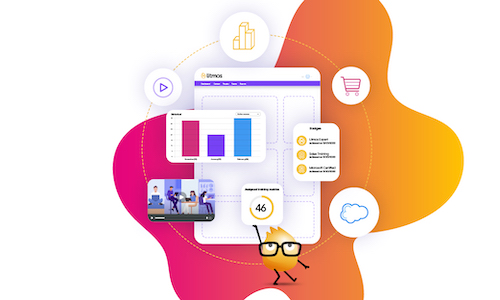The DNA of a Customer-Focused Sales Team
In the United States alone, the amount invested in sales training each year is staggering – a whopping $800 billion! (Yes, with a B!)
It’s not new to say sales is the lifeblood of a business. It’s no wonder there is such a willingness to invest in the success of our sales teams.
What if all that training is leaving out a critical piece?
What if your sales training is solely focused on getting a customer to sign on the dotted line, but not on what will happen once that customer chooses your brand?
The answer is disappointed customers. By not understanding the entire experience, it’s way too easy for sales pros to set unrealistic expectations. Those out-of-sync expectations lead to customers feeling let down by the actual product or service they were sold.
There is a real difference between a traditional sales team and a customer-focused sales team. A customer-focused team has a distinct DNA, leading the customer to the best choice and reinforcing that choice with deep knowledge of how the entire customer journey supports customer goals.
A customer-focused sales team:
- Aligns their goals with the customer’s goals
- Understands the operations that enable satisfaction
- Communicates effectively among departments
- Checks up on the experience through the entire journey
They must be empowered to do these things!
In fact, according to Gallup, organizations with empowered employees report 50% higher customer loyalty. But the constant pressure of getting new customers can lead to misaligned goals around loyalty.
Empowered sales professionals know the difference between getting a short-term sale as a win and gaining a long-term, loyal customer.
Does your team understand the end-to-end customer journey?
It’s really challenging to ask your sales team to set the right expectations if they aren’t totally aware of what happens after they move a prospect to the customer column in your CRM system. If your training doesn’t include customer journey mapping, then it’s time to re-evaluate.
Are you updating your sales team in real time?
Those product updates and customer challenges impact how your sales people can sell. It’s not unheard of to have a salesperson informed by a prospect about a known software bug or an exciting new feature. Any sales pro will tell you it’s a rotten feeling to know less than the prospect about your own company!
Do your sales professionals stay connected to your customers throughout the lifecycle?
While it may seem counter-intuitive, it’s important for your sales team to feel like they have the right to check in and ask “how’s it going?” to your customers, well beyond the sales journey. The initial relationship is a critical one to setting the stage for customers, and for creating a line of communication for the customer.
Maximizing the experience across the buyer journey increases satisfaction by 20% and drives revenue growth by up to 15% -Oracle
Sales is often seen as the first step in the customer journey, or the last step in marketing. Your customer’s perception about your brand is developed over the entire journey. Everything from marketing to cancelation experiences create emotions, which lead to either raving fans or permanent detractors.
 Ready to really dig into how sales impacts the customer experience?
Ready to really dig into how sales impacts the customer experience?
Then don’t miss my L&D Expert Session during the Litmos Live Virtual Summit, where I’ll teach you how to connect your sales team to the true journey your customers have. Not registered yet? You can do that here.






